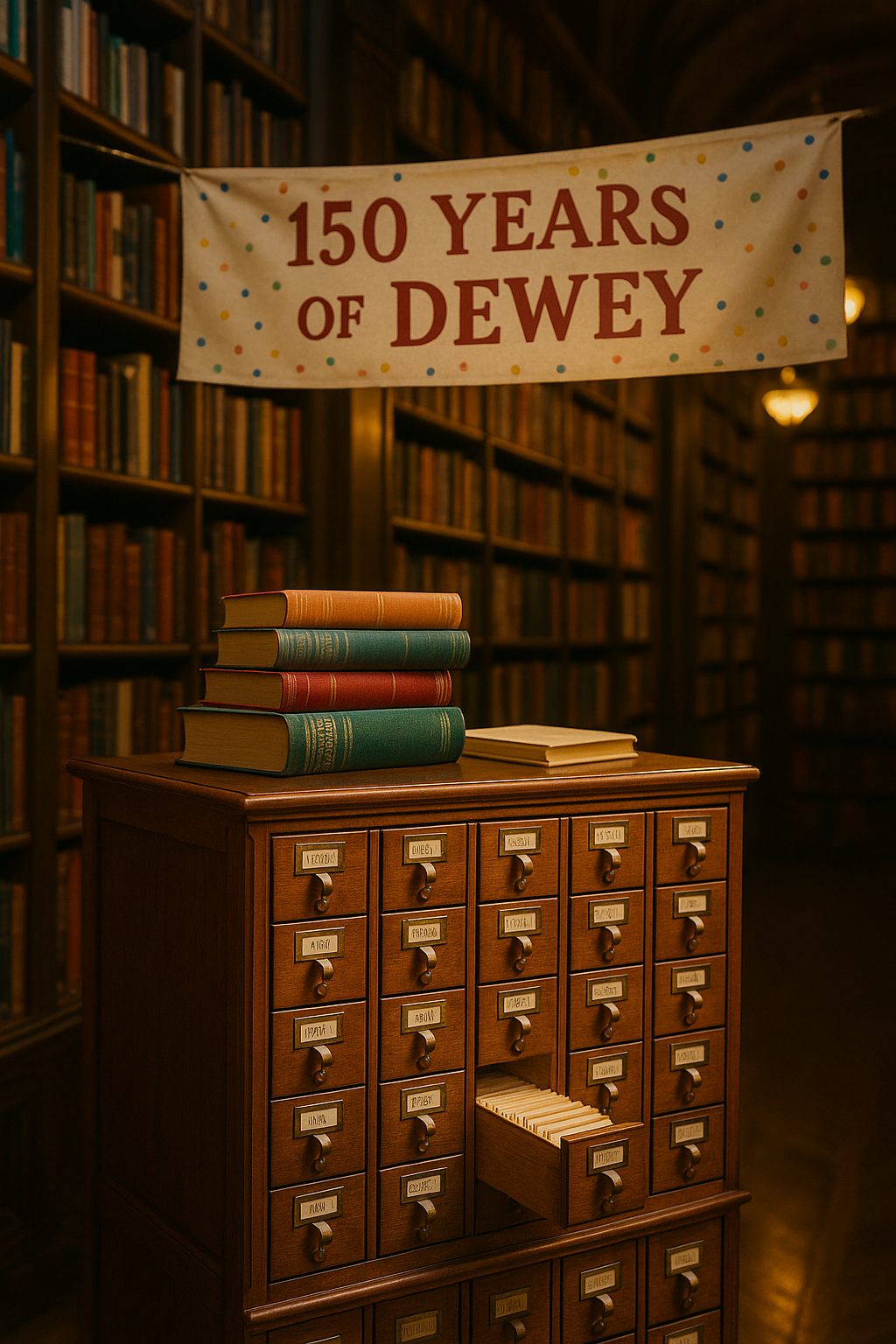
By Elke Porter | WBN News Vancouver | April 27, 2025
Once upon a time — in the dusty aisles of 19th-century libraries — a young librarian named Melvil Dewey grew frustrated. Books were piled haphazardly, organized by whatever method the librarian of the day deemed fit: color, height, or pure chaos.
In 1876, at the tender age of 21, Dewey decided enough was enough. He created the Dewey Decimal Classification System (DDC), a revolutionary method to sort books into ten main classes, each split into increasingly specific subclasses. Finally, humanity could find everything from ancient philosophy to cake-baking guides without needing a map and a pack mule.
Dewey wasn't an engineer — though his brain worked like one. His interest in simplification, combined with an obsession for order (and, let’s be honest, a bit of a controlling streak), led him to create a system that would change the world of libraries forever.
It took him about a year to finalize the system, and although initial adoption was slow, by the early 20th century libraries around the world embraced Dewey's vision with open arms — and endless labeling machines.
Today, Dewey’s legacy lives on, but the world he helped organize is shifting. People have moved from thumbing through card catalogs to typing into Google, and now, into the era of AI. Tools like ChatGPT, Perplexity.ai, and other data-grabbing, answer-generating marvels can retrieve information in milliseconds — often while we’re still wearing pajamas.
The timeline of research tools looks something like this:
- Monks: painstakingly copying manuscripts by hand.
- Printing Press (1450s): ushering in mass literacy and rampant pamphleteering.
- Libraries & Dewey (1876): classifying the chaos.
- Google (1998): making "just Google it" a life philosophy.
- AI Tools (2020s): now your answers are curated faster than you can blink.
Every year, December 10 is celebrated as Dewey Decimal System Day, honoring the day Melvil Dewey first published his groundbreaking system And also celebrating the day he was born. It's a time for librarians, educators, and book lovers to reflect on the magic of organization and the quiet heroism of the Dewey Decimal System.
And get ready — in 2026, we’ll be celebrating the 150th anniversary of this mighty system! Libraries often host workshops, scavenger hunts, and themed displays to remind us how thrilling it can be to track down a 641.5 (cooking), a 398.2 (fairy tales), or a 599.75 (wild cats).
Melvil Dewey’s system, though created long before the internet or TikTok, remains a triumph of human ingenuity. Today, the DDC is used by libraries in 135 countries, translated into 30 languages, and continuously updated by the Online Computer Library Center (OCLC) and the Decimal Classification Division of the Library of Congress.
New Paths: Book Seek for a New Generation
While many libraries still proudly use the Dewey Decimal System, a growing number are exploring alternatives—especially for young readers. In places like the Whitefish Bay Public Library, librarian Valerie Morris spearheaded the creation of Book Seek, a fresh classification system designed with youth in mind. Inspired by the Metis system, Book Seek organizes books based on how children naturally search for them—by topic and curiosity, rather than rigid numerical codes.
The motivation behind this shift? Dewey’s 19th-century system, while revolutionary at the time, often reinforced outdated stereotypes and was built for librarians, not the average reader. Morris and her team spent two years researching, convincing stakeholders, securing funding, and reclassifying their 8,000-book youth nonfiction collection (they whittled it down to 6,300 books in the process!).
The result has been a more equitable, intuitive, and inclusive way for children and teens to find books they love. Systems like Deep Seek and Book Seek reflect a broader movement: a library is no longer just about where books sit on shelves—it's about making knowledge more accessible, engaging, and meaningful for everyone.
Shaping the Future of Dewey Together
While some libraries are adopting alternative systems like Book Seek and Deep Seek to better serve young patrons, a group of dedicated librarians and editors are also working hard to address and eliminate bias within the Dewey Decimal Classification itself. Recognizing the system's origins in a narrow, Western-focused tradition, today's Dewey editorial team is making the revision process more transparent, inclusive, and responsive to community needs.
They are inviting librarians, subject experts, and community members worldwide to suggest improvements and ensure that Dewey reflects diverse perspectives and evolving cultural norms. If you have ideas for making Dewey better, you are encouraged to contribute by emailing dewey@oclc.org or by following their updates on the Dewey Blog. Together, we can help libraries remain welcoming, equitable spaces for all.
Even as we wave goodbye to traditional research methods, Dewey’s contribution remains — a beacon of organization in a sea of information overload. As AI takes the baton, we can thank Dewey for showing us that knowledge, however vast, can always be made navigable... preferably in neat numerical order.
#Dewey Decimal System, #Library Love, #Dewey Decimal Day, #Library Life, #Knowledge Organization, #Library History, #AI and Libraries, #Research Evolution #WBN News Vancouver #Elke Porter
Connect with Elke at Westcoast German Media or on LinkedIn: Elke Porter or contact her on WhatsApp: +1 604 828 8788

